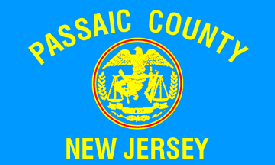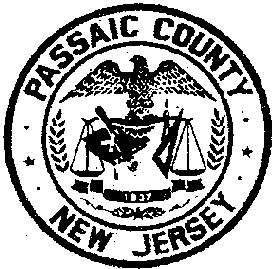Northern New Jersey Real Estate Bubble
Keeping a watchful eye on our small part of the largest asset bubble in history
Since 2000, property taxes in Passaic County have surged, while incomes have barely grown. Tax rate increases in many municipalities have doubled and nearly tripled the pace of household income growth, an analysis conducted by the Herald News has found.
Passaic County property taxes increased by an average of 39 percent between 2000 and 2005.
Local homeowners say they have felt that shift acutely. It's made them cut spending, postpone retirement and contemplate moving out of state.
Local News
Deflating the American Dream in Jersey
Higher Bills, Flat Incomes Deflate The American Dream In Jersey
From theMonday, August 14, 2006
| PHOTO: LESLIE BARBARO / HERALD NEWS |
Frederick Rembis, a Clifton resident, has kept a log of his annual property tax bills for decades. Over the last few years, he's been troubled by what he's seen.
"Every year I write a larger check by 4 to 6 percent," said Rembis, 62, a retired engineer. "I'm worried."
Rembis is right to be concerned. Since 2000, property taxes in Passaic County have surged, while incomes have barely grown. Tax rate increases in many municipalities have doubled and nearly tripled the pace of household income growth, an analysis conducted by the Herald News has found.
Local homeowners say they have felt that shift acutely. It's made them cut spending, postpone retirement and contemplate moving out of state.
"I've had to stay with my older car," said Johnny Malave, 43, who has lived in a modest two-family house in Prospect Park for the past decade. "This is holding me up in life."
Passaic County property taxes increased by an average of 39 percent between 2000 and 2005, according to state data.
During that time, census statistics show that the county's median household income, when adjusted for inflation, plummeted by roughly one third.
The largest property tax increases since 2000 were in Lodi, Prospect Park, Totowa and Little Falls. Lodi's property taxes ballooned by 18 percent between 2003 and 2004, which was five times the inflation rate. From 2000 to 2005, Prospect Park saw the biggest overall increases in taxes, which rose by 52 percent.
Malave says his Prospect Park tax bill was about $3,900 10 years ago. It was $6,000 last year. He says his wages as a warehouse manager have increased by 2 percent, at most, over the same period.
"I've worked hard for my house. The state should give us a tax break," Malave said.
Property taxes have surged nationwide since 2000, as the cooling economy forced states to compensate for less federal aid and income tax revenue.
"Just to get out of the economic rut, states needed a way to rebound," said Matthew Gardner of the Center for Tax Justice, a nonprofit based in Washington, D.C.
New Jersey's property taxes are the highest in the nation, and twice the national average, according to census data. The average Passaic County homeowner paid $6,420 last year in taxes, more than $500 more than the state average.
They've also paid much more for basic goods over the last several years.
The Consumer Price Index, which measures prices for food, gas and other personal expenses, has risen faster than the inflation rate since 2002 in the area that includes northern New Jersey, according to Bureau of Labor statistics.
Half of the state's $20 billion raised in property taxes go to school aid. The rest is primarily divvied between municipal and county expenses. Property taxes are one of the primary means for local governments in New Jersey to raise revenue.
The property tax picture was much different in the 1990s. After the economy slumped in the early 1990s, Gov. Jim Florio cut municipal funding and laid off many state workers. The state's job growth was kept at 2.9 percent between 1990 and 2000, compared with 12 percent nationwide, according to James Hughes, dean of the Edward J. Bloustein School of Planning and Public Policy at Rutgers.
Incomes also rose sharply during the '90s, translating into additional sales and income tax revenue. The county's median household income, when adjusted for inflation, rose by 31 percent between 1989 and 1999.
The influx of funds allowed New Jersey to provide additional state aid to municipalities, helping to keep local taxes low. In 1994, the state and municipalities also drastically reduced their contributions to the state pension fund.
The situation changed on both the spending and revenue fronts in 2000. As the American economy cooled, salaries stopped growing robustly and income tax revenue fell. State income tax revenue had increased by 14 percent between 1998 and 2001; it fell by the same percentage in 2002, according to Hughes. State spending also grew on a number of fronts. New Jersey's state work force swelled rapidly, fueled by school hiring and political appointments, according to Hughes.
"No one wanted to cut back," he said. "We lost discipline."
On the local level, municipalities began making larger contributions to the state pension system in 2004, which forced many to raise property taxes to balance budgets. Some local towns, such as Prospect Park and Hawthorne, were also hit with debt service for construction projects or additional school tax levies.
At the same time, state aid to municipalities remained flat. "It's killing the municipalities," said Mary Jeanne Hewitt, Hawthorne's chief financial officer.
Homeowners have been caught in the middle. Bill Alexander, 74, saw the property taxes on his Bloomingdale home surpass $8,000 last year. That's almost a third of what he paid for his entire house 46 years ago.
A retired milkman, Alexander started delivering a penny-saver magazine three years ago to bring in an extra $300 a week, in part, to help with his bills. "Social Security hadn't given me raise," Alexander joked.
Bureau of Labor Statistics show that older workers are increasingly staying employed. In 2000, 12.8 percent of those 55 and older were still working, while that figure grew to 15.1 percent in 2005.
Janet Guariglia, a Prospect Park homeowner, came out of retirement four years ago, taking on a part-time teaching job at William Paterson University. She says property taxes were part of the motivation.
"I love it here. I don't want to leave," said Guariglia, who has lived on North Ninth Street for 46 years. "They are pushing us out."
Passaic County residents have been leaving. Between 1995 and 2000, an average of 3,557 county residents left the state annually, according to census data. The rate more than doubled between 2003 and 2004.
States nationwide are wrestling with the property tax question. South Carolina lawmakers fiercely debated how to reduce taxes this year, and New Jersey and Idaho have both called special legislative sessions on property taxes. In Pennsylvania, property taxes have become a top issue among the gubernatorial candidates.
Gov. Jon Corzine has said he wants to cap annual property tax increases at 4 percent and offer direct tax reductions to homeowners earning under $200,000. Some analysts say caps tend to backfire, as they put pressure on other revenue generators -- like sales or business taxes -- to fill the void. "Across-the-board cuts just aren't sensible," Gardner said.
Rembis, who has contemplated leaving the state over the taxes, said lawmakers need to focus more on cutting spending. "They should have to live in a reasonable budget like the rest of us have to do," he said.
Reach Heather Haddon at 973-569-7121 or haddon@northjersey.com and Tom Meagher at 973-569-7152 or meagher@northjersey.com
Copyright © 2006 North Jersey Media Group Inc.
|





0 Comments:
Post A Comment